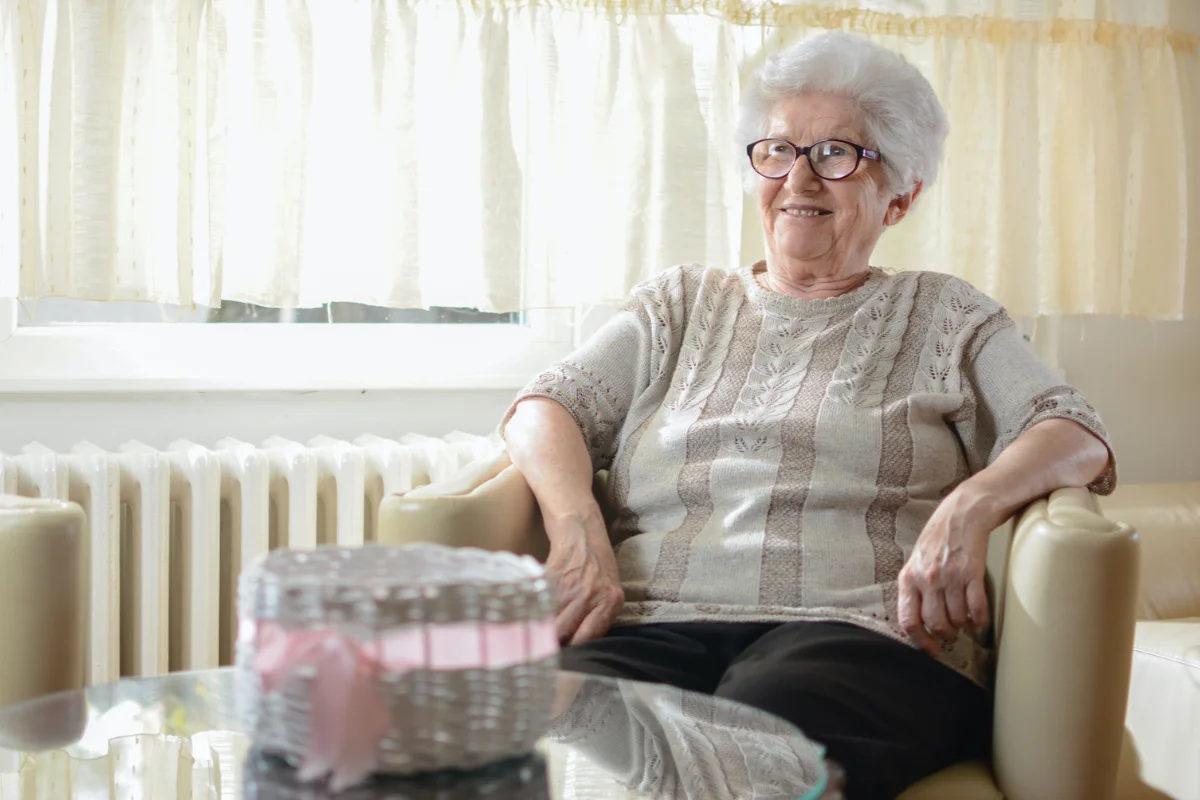The Impact of Personalized Memory Care on Cognitive Health
The Impact of Personalized Memory Care on Cognitive Health
Blog Article
Everything About Memory Care Solutions: Why Small Memory Treatment Houses Are a Wonderful Option
Memory care services play a vital function in sustaining people with Alzheimer's and mental deterioration. Tiny memory care homes stick out for their personalized approach and intimate setting. With lower staff-to-resident proportions, these homes foster more powerful links and customized care. Residents benefit from boosted social communications and a secure atmosphere. As families explore options, comprehending the one-of-a-kind advantages of little memory care homes comes to be essential. What variables should be considered when picking the ideal home?
Recognizing Memory Care Solutions
While numerous might be familiar with general elderly care options, recognizing memory treatment solutions is important for households facing the challenges of cognitive decrease. Memory care specifically caters to individuals with problems such as Alzheimer's condition and various other types of dementia. These solutions offer a structured setting that concentrates on improving the lifestyle for locals with specialized treatment and support.Memory care centers are made to assure security and security, frequently featuring safeguarded atmospheres to stop roaming. Trained team member are offered all the time to assist with everyday tasks, drug administration, and personal care. Furthermore, memory treatment programs typically consist of cognitive stimulation tasks, customized to involve homeowners and promote psychological health. Families can take advantage of understanding these services, as they allow educated choices concerning their loved ones' care, guaranteeing that their certain needs and preferences are dealt with in a caring and helpful way.
The Advantages of Tiny Memory Treatment Residences
Small memory care homes provide distinctive benefits that can greatly enhance the lifestyle for citizens with cognitive disabilities. One substantial benefit is the intimate atmosphere, which permits tailored interactions among personnel and homeowners. This smaller setting cultivates purposeful connections, reducing feelings of isolation and stress and anxiety often experienced by individuals with memory issues.Additionally, the reduced staff-to-resident proportion in little memory treatment homes makes it possible for caregivers to supply even more attentive guidance and support. This approach not just enhances security but also promotes a complacency for the residents.Moreover, small memory treatment homes can adapt promptly to the one-of-a-kind demands and preferences of each resident, permitting a more homey ambience. Such a setting can urge social engagement and involvement in tasks, inevitably enriching the daily experiences of those living with cognitive disabilities.
Personalized Care Plans for Homeowners
Individualized care strategies are important in memory treatment homes, as they satisfy the special needs and choices of each homeowner. These plans begin with complete analyses conducted by experienced specialists, who assess cognitive abilities, case history, and personal passions. This customized technique assurances that care is not just reliable yet also considerate of each individual's dignity and autonomy.Moreover, personalized treatment strategies are adaptable, enabling modifications as homeowners' requirements develop with time. This adaptability fosters a sense of protection and familiarity, which is essential for individuals dealing with memory difficulties. Caregivers are trained to implement these plans constantly, giving assistance that aligns with the residents' routines and preferences.Ultimately, individualized treatment strategies improve the high quality of life for homeowners by advertising engagement, wellness, and freedom, making them an essential element of memory treatment services in small memory care homes.
Creating a Home-Like Atmosphere
Creating a home-like atmosphere is important for promoting convenience and knowledge in memory treatment settings, as it considerably influences homeowners' emotional well-being. Small memory treatment homes commonly focus on personalized touches, such as cozy shade combinations, household pictures, and acquainted furnishings arrangements, which assist locals really feel more secure. Integrating elements reminiscent of a conventional home, like cozy space and common areas, urges a feeling of belonging.Moreover, utilizing all-natural light and outside rooms can improve the atmosphere, promoting relaxation and peace. Team participants play a significant duty in preserving this atmosphere by engaging with citizens in a thoughtful way, treating them like family. Regular activities, such as cooking or gardening, can likewise add to a home-like feel, supplying possibilities for residents to take part in meaningful experiences. Overall, developing a supporting atmosphere sustains cognitive feature and emotional stability, making it an important element of memory care services.
Improved Social Interaction and Area
Enhanced social communication and community are important components of memory treatment solutions. By promoting personalized social engagement and developing a family-like environment, these solutions advertise meaningful connections amongst residents. Team activities and occasions additionally encourage involvement, aiding individuals feel more included and supported.
Individualized Social Interaction
While social interaction is vital for overall wellness, several individuals with memory disabilities usually struggle to engage meaningfully with others. Individualized social engagement in memory treatment homes addresses this difficulty by creating tailored activities that cater to citizens' unique interests and capabilities. By concentrating on specific choices, caretakers can promote connections that resonate deeply with everyone. Tasks such as art therapy, music sessions, and assisted discussions promote cognitive excitement and emotional expression. Furthermore, tiny group settings encourage sociability and permit more intimate communications, boosting feelings of belonging. This approach not just deals with sensations of isolation however additionally equips locals to keep a feeling of identity, ultimately contributing to improved psychological wellness and high quality of life.
Family-like Atmosphere
In a memory care setup, cultivating a family-like atmosphere substantially improves social communication and builds a feeling of neighborhood amongst locals. Smaller memory care homes commonly prioritize intimate settings, enabling citizens to create closer links with one another and team participants. This nurturing ambience advertises trust, which is crucial for people with memory impairments. Residents are most likely to talk and share experiences, producing a helpful network that alleviates sensations of isolation. The knowledge of shared over here areas and regimens contributes to a feeling of belonging, better urging social communication (personalized memory care). In such settings, emotional bonds grow, causing improved general health and a better of life for locals as they navigate their day-to-day experiences with each other
Group Activities and Events

Safety and Protection Functions in Tiny Houses
Lots of tiny homes designed for memory care include necessary security and safety functions to guarantee the health of locals. These homes commonly utilize secure access and departure points to avoid roaming, a typical issue among individuals with memory disabilities. In addition, security systems and alarm system systems improve monitoring, ensuring that personnel can promptly reply to any kind of unusual activities.Interior designs are tailored for safety, with lessened threats such as clutter-free pathways and sharp corners. Handrails and non-slip flooring are typically set up to decrease the risk of drops. Personnel are learnt emergency situation protocols, guaranteeing they are planned for different situations.Moreover, individualized care strategies may consist of assessment of specific safety needs, providing customized remedies for each homeowner. Overall, these security and safety and security attributes develop a caring atmosphere where locals can prosper while maintaining their self-respect and self-reliance.
How to Select the Right Memory Care Home
How can households guarantee they select the most ideal memory treatment home for their liked ones? The decision calls for careful consideration of a number of aspects. First, households must evaluate the facility's personnel certifications and training, guaranteeing that caregivers are experienced in handling memory-related conditions. Next, it's essential to examine the home's environment, concentrating on security attributes and whether it fosters a feeling of neighborhood and belonging. Seeing the facility can provide understanding into day-to-day tasks and the social atmosphere, which are essential for psychological excitement and emotional wellness. Additionally, family members should make inquiries regarding the care strategies used, ensuring they are customized to individual requirements. Finally, taking into consideration the home's location and availability for family members check outs can look at this web-site add to a smoother change. By dealing with these elements, families can make an educated choice that prioritizes their enjoyed one's convenience and high quality of life in a memory care setting.
Often Asked Inquiries
What Credentials Should Staff Members in Memory Treatment Residences Have?
Personnel in memory treatment homes ought to have pertinent certifications, experience in mental deterioration care, solid interaction skills, and compassion. Continuous training in behavior management and healing treatments enhances their capability to support citizens properly.
Exactly How Do Memory Care Provider Differ From Traditional Assisted Living?
Memory treatment services focus particularly on individuals with memory disabilities, supplying customized assistance and organized environments. In contrast, standard assisted living provides general help with everyday tasks, doing not have the customized technique necessary for those with cognitive difficulties.
What Kinds of Tasks Are Supplied in Memory Care Residences?
Memory treatment homes generally offer a variety of activities created to involve residents. Typical alternatives consist of art therapy, music sessions, cognitive games, physical exercises, horticulture, and get-togethers, all targeted at enhancing wellness and cognitive feature.
Can Residents Bring Their Own Personal Belongings to Memory Treatment Homes?
Citizens can normally bring their own possessions to memory care homes, permitting them to individualize their home - personalized memory care. This practice aids create an acquainted environment, promoting convenience and a sense of identification for the people

Exactly How Are Relative Involved in the Care Refine?
Member of the family play a crucial function in the treatment process, often taking part in decision-making, going to treatment conferences, and supplying emotional assistance. Their involvement fosters a joint environment, boosting the resident's general health and high quality of life. While numerous may be acquainted with general senior care choices, recognizing memory care solutions is necessary for family members facing the difficulties of cognitive decrease. These solutions supply an organized setting that concentrates on improving the top quality of life for residents with specialized care and support.Memory care centers are designed to ensure safety and security and safety, commonly featuring safeguarded environments to stop roaming. Personalized care strategies are important in memory care homes, as they cater to the unique requirements and preferences of each local. Team participants in memory care homes must have pertinent accreditations, experience in dementia Continue care, solid communication skills, and compassion. Memory treatment solutions concentrate specifically on individuals with memory problems, providing specific support and organized atmospheres.
Report this page